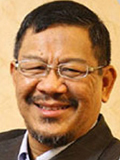by Sadiri Joy Tira
I am fascinated by the term “Global Village” coined by Edmonton, Alberta-born Canadian philosopher, Herbert Marshall McLuhan. Decades before Global Village became a catch-phrase, McLuhan popularized it in his writings, using it to describe how the globe would be connected by electronic technology and instant information.
Three decades ago, while studying at Canadian Theological Seminary, a missiology professor of mine described the term Global Village in his lecture. Now, leaping from McLuhan’s usage, I use the term global village to refer to the reality of the world seemingly growing smaller due to the arrival of immigrants from all over the world in international cities.
Today, urban missiologists talk about Global Cit[ies], and Arrival Cit[ies]. These mission scholars describe the shrinking globe and its impact on missions and local church evangelistic programs. I can think of no better example of these realities than what I will call the “Global Apartment.”
For the month of February, I was in Manila, Philippines, lecturing at Asian Theological Seminary, networking and planning for the 2015 Global Diaspora Forum under the Lausanne Movement/Global Diaspora Network platform. While in Manila, I stayed in the Ortigas Commercial Centre.
I was hosted by my friends, Mark and Susan, in their 39th floor suite in their apartment building, Grand Emerald Towers, a 40-stories high-rise condominium-apartment across from Greenhills Christian Fellowship (GCF). There must be close to 2,000 people living in that tower and I was surprised to learn that there were many Koreans, Indians, Europeans, Latinos, and Americans residing there. I saw them every day.
One day, my friend Mark and I were going down to the ground level when we stopped at the 35th floor to pick up more “passengers.” There came in three people: a Korean, a Nigerian, and a 6 ft. tall lady wearing formal clothing, a designer handbag, and a Gucci wristwatch.
I took the courage to break the silence! I said, “Hello folks, welcome to our conference room!” Everyone smiled. Then, I directly engaged the tall woman inside the elevator, saying, “You are taller than me and I think I know which country you came from!”
She smiled. “How do you know, and where do you think I came from?”
I responded: “You must be from Iran!”
She replied, “How did you know that? You are correct.”
I said, “I have been in Tehran and I can usually identify the wonderful Iranians.” The door opened and the five of us said to each other,”Goodbye and enjoy the day.”
I also added, “Let’s have another conference in this same place.”
Tonight, March 6, 2014, I am back in Edmonton, Alberta (Canada). At 9 p.m. I was having a cup of coffee with my friends Nabil, a first-generation Sudanese-Canadian, and, Owen, a third-generation British-Canadian. While having our coffee at Tim Horton’s, my friends and I discreetly took note of an affectionate young couple in the corner. For the next 15 minutes we discussed the rise of cross-cultural dating, and interracial marriage in Canada.
Around 10 p.m. I asked my friends several questions and we grappled with each.
I said to Owen, “Before you arrived, I was talking to a Somalian man. He said that there are close to 30,000 Somalis in Edmonton alone.” Nabil added, “They are a huge community, larger than the Sudanese.”
Owen’s eyes doubled in size. “What? How many? Really! Where are they in the city?” I told my friends, “If I was a pastor again, I would look for Somalis, I am sure they are living not too far from our local church. Many live in the apartment buildings around this Tim Horton’s.”
I thought about the Ortigas Commercial Centre. If I was a pastor again, I would mobilize my congregation to occupy many condominiums and apartments.
There they live as Salt and Light.
There, they practice hospitality and become friends to the foreigners around them.
I would lead a seminar on how to conduct evangelism inside the elevators, encouraging them to be polite, cordial, helpful and friendly. I would remind them that they can be true Christians even for a five minutes on elevator ride. People can be very rude inside elevators, using cell phones and only looking the tip of our shoes or up to the ceiling. I suggest we make use of every moment of our lives to shine as bright as the sun inside the elevator.
Finally, I would do all I can to plant a congregation–be a cell group, a prayer group, an affinity group in our global apartments within a 100-meter radius of our church facility.
Is that too much for a pastoral vision? No. Missions in the 21st century is no longer missions beyond but missions around! I am excited as individuals, organizations, and denominations work together to brainstorm and implement “out-of-the-box” strategies for reaching people with the good news. I am always saying that “Now, is a thrilling time.” Yes, it is.
[Read more about diaspora missions in apartments by clicking here.]
Sadiri Joy Tira is chair of the Global Diaspora Network and senior associate for diasporas with Lausanne.
Side note: In March 2015, Greenhills Christian Fellowship will be the venue and host of the 2015 Global Diaspora Forum (GDF), in which 500 invited diaspora missiology scholars and practitioners will assess the advance of diaspora missiology. You can learn more about the event through the Lausanne Movement‘s media outlets.

